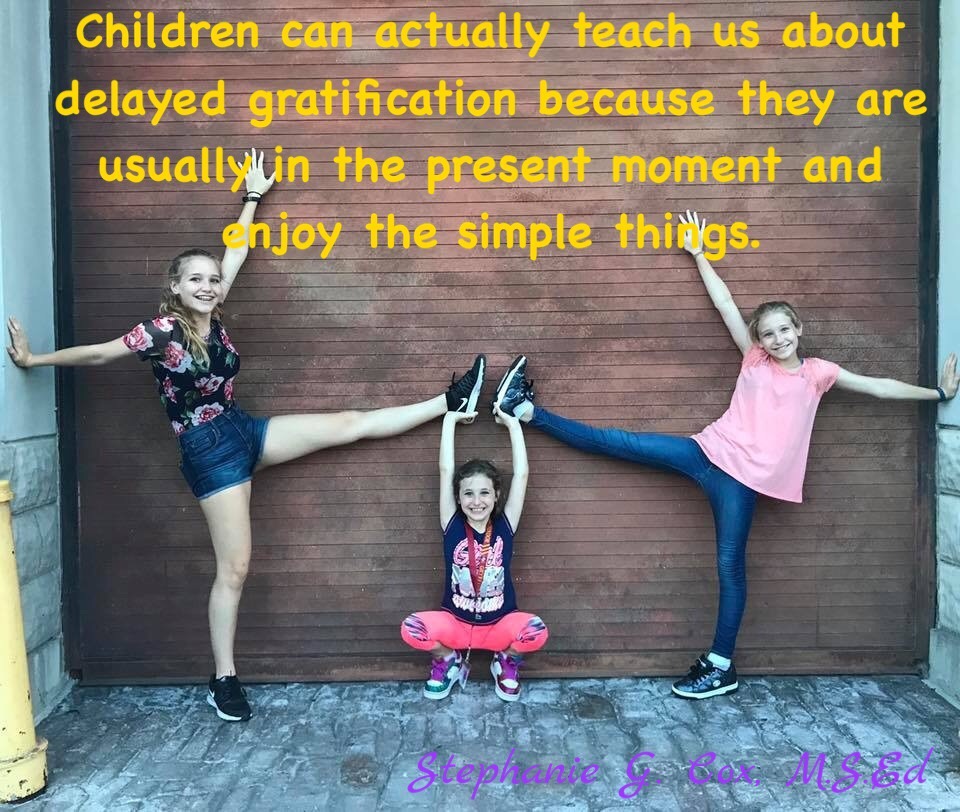I can’t believe it’s Christmas time again. Well, it was when I began writing this post.
If you’re anything like me, you enjoy helping others in need all year-round, but especially this time of the year. There are so many people in need and we are called to help them.
Unfortunately, this time of year also brings out the greediness in many. You usually see this on Black Friday (which starts on Thanksgiving night now) and just before Christmas when people fight over the products that they must have.
Our children are aware of all of this. They are also aware of when we are unkind to each other and them. Conversely, they’re also aware of our kindness and compassion for each other.
This is why I was sickened and angered by this dad who forced his daughter to walk to school which is miles away while he videotaped her in order to punish her for bullying.
Punishment is also a form of bullying because it teaches children how to force people to do what they want. It is a temporary, ineffective solution to any behavioral issues, but especially for bullying. Most bullying is the result of bullies feeling powerless because there’s either too much control in the home, i.e. authoritarian parenting (very controlling and punitive), or not enough care and acknowledgment, i.e.neglectful and permissive parenting. Some children (and adults) are so desperate for control and power that they will target seemingly weaker people. They push and push until they get the reaction they want and then they feel powerful being over the other person.
While I completely understand the seriousness of bullying as I have been bullied and made fun of my whole life, and I just dealt with a cyber bully, I feel like the dad just reinforced the bully mentality by making his daughter walk to school and video it.
What did it teach her about kindness and respect? NOTHING! And his demeanor was very punitive and bullyish. Forcing her to walk in the cold while he followed her in his truck and videoed the whole thing is punishment, not a consequence of her actions. And SHE was also bullied herself. Think maybe she was trying to exercise power over others like they had done to her? There is no excuse for bullying, but you have to understand all the reasons why a child is behaving in a certain manner so that you can work with him/her and teach him/her.
Children learn what they live. As I said, I just recently had a cyber bullying incident that I had to report to Facebook. Both children and adults get behind their screens and say things that they usually wouldn’t ever say to the other person’s face. I have not been a bully but I have been harsh online and have had to apologize for my behavior. Saying anything cruel and calling names is bullying and verbal and emotional abuse!
It’s very important to realize that people of any age that act poorly usually feel poorly. If one feels good about oneself, usually they don’t have the need to exercise control or get a reaction from another person. There’s no need to purposefully hurt another person when you have healthy self-compassion. Bullies are trying to get/do one of two things:
- Exercise control over a weaker person to feel powerful and inflict pain so that someone else can feel the pain that they are feeling.
- To get a negative reaction from the victim as well as attention from others.
I would be very upset if I had a child and my child ever bullied another child. Social media and other media outlets are showing bullying to children. So the first two things I would ask if my child was being a bully is “What have I been doing to contribute to this?” And, “Why is my child feeling like he/she has to bully?” There is a reason for all unwanted behaviors. I would work on the connection between my child and me.
I would limit screen time for my child and insist on knowing every account they have. Many children and adults have secret accounts for bullying and other inappropriate things that they don’t want anyone else to know about. It is crucial to be an active participant in our children’s online activities. We need to stop cyber bullying and teach children that cyber bullying is also never okay. If they see online bullying, they should put an eyeball 👁 emoji in the comments. And cyber bullying must always be reported!
I would have many long discussions with my child about why it’s NEVER ok to bully. I would read books with him/her about people who were bullied. I would role play to teach kindness. I would have him/her do community service with me.
Teaching children unconditional kindness is so important. Unconditional kindness is when we do something kind to someone without expecting any type of reward or credit for it . This is true kindness.

Another critical thing I would do is teach my children about all different people and not do anything to criticize differences. When disability, culture, religion, age, race, and sexuality differences are understood, there’s less bullying because children learn that we’re all humans and we deserve equality and respect no matter what! This is why I wrote my children’s book about my cerebral palsy which is currently being illustrated. When we understand someone very different than us, it leads to kindness and compassion (unless the person is mentally ill and unable to be kind).
Finally, I would take the child to and from school and check in with her/his teacher until I could trust him/her again. Gentle parenting is more work than just punishment. Most parents don’t do anything because they don’t know how.
This is an excellent article about helping bullies become more empathetic and compassionate with others.
Understanding what drives bullies is crucial to both stopping and preventing it. Teaching children empathy and compassion is so important. And Christmas time is a great time to really teach this so it will continue year-long. When children see and are involved with more giving than receiving, they’re taught about empathy for people who aren’t as well off as they might be. It also teaches gratefulness and that they are not entitled to get anything.
Christmas and New Years’ is a time to get involved with different charities. It’s also a time to reflect on our relationships with our children and other people. Children need our love and a deep connection with us. They need to see healthy relationships with people. This is vital for teaching empathy, compassion, and love towards others. They also need us to teach them healthy coping skills for their negative emotions.
I believe most bullies can be reformed if they are worked with for a while. It may not happen overnight but we have the power to show them what empathy and compassion looks like. We can soften a harden heart by helping them deal with their own pain that is causing them to bully. We can teach them gently that greed and entitlement are bad.
Here is another excellent article about how to deal with bullying.
Children who witness bullying should always report it to a trusted adult. If they are being bullied, they should do their best not to react and walk away to report it. I believe teaching children self-defense is also important. Taekwondo and karate are wonderful ways of accomplishing this!
This Bible verse came up in my devotional recently during my cyber bullying incident. It comforted me and applies to everyone even if one isn’t a believer.
“But love your enemies, and do good, and lend, expecting nothing in return; and your reward will be great, and you will be sons of the Most High; for He Himself is kind to ungrateful and evil men” (Luke 6:35, NASB).
As we enter the new year, may we use gentle parenting to prevent bullying and raise kind, compassionate children! I hope everyone had a wonderful Christmas and will have a happy, healthy, blessed New Year!














